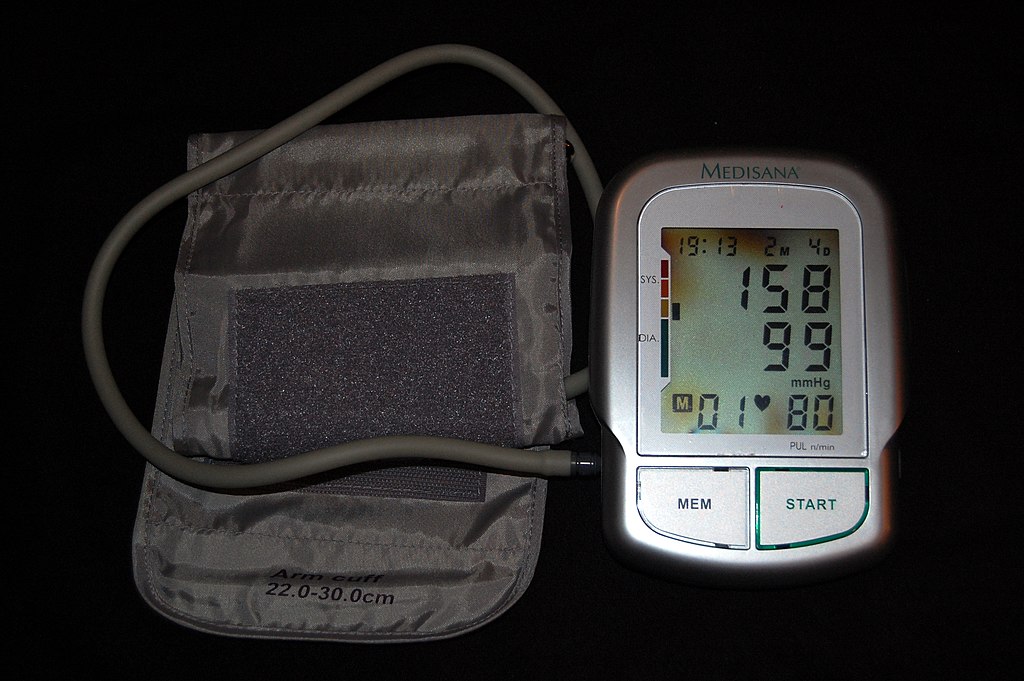Hypertension, commonly known as high blood pressure, is a prevalent health condition affecting millions worldwide. Often referred to as the "silent killer," hypertension typically presents with no noticeable symptoms but can lead to severe complications if left untreated. This composition aims to delve into the definition, types, signs, symptoms, causes, prevention, control, and treatment options for hypertension.
Definition:
Hypertension is a medical condition characterized by elevated blood pressure persistently exceeding normal levels. Blood pressure is measured in millimeters of mercury (mmHg) and consists of two values: systolic pressure (the pressure when the heart contracts) and diastolic pressure (the pressure when the heart relaxes). Normal blood pressure is typically defined as 120/80 mmHg, with hypertension diagnosed when blood pressure consistently exceeds 130/80 mmHg.
Types:
Hypertension can be classified into two main types:
1. Primary (essential) hypertension: This type develops gradually over time with no identifiable cause. It's the most common form, accounting for approximately 90-95% of cases.
2. Secondary hypertension: Secondary hypertension results from an underlying medical condition, such as kidney disease, hormonal disorders, or certain medications. It constitutes a smaller percentage of hypertension cases but requires specific treatment targeting the underlying cause.
Signs and Symptoms:
Hypertension is often asymptomatic in its early stages, earning it the moniker "silent killer." However, as blood pressure rises, individuals may experience:
- Headaches
- Dizziness
- Blurred vision
- Shortness of breath
- Chest pain
- Fatigue
- Irregular heartbeat
These symptoms, if present, often indicate severe hypertension and necessitate immediate medical attention.
Causes or Causative Agents:
Several factors contribute to the development of hypertension, including:
- Genetics
- Unhealthy lifestyle habits (e.g., poor diet, lack of exercise)
- Obesity
- High salt intake
- Chronic stress
- Smoking and excessive alcohol consumption
- Underlying medical conditions (e.g., kidney disease, thyroid disorders)
Prevention:
Preventing hypertension involves adopting a healthy lifestyle, including:
- Maintaining a balanced diet low in sodium, saturated fats, and cholesterol
- Engaging in regular physical activity
- Limiting alcohol consumption
- Managing stress through relaxation techniques or counseling
- Avoiding tobacco products
- Regular monitoring of blood pressure and routine medical check-ups
Control:
For individuals diagnosed with hypertension, effective control strategies include:
- Adhering to prescribed medications
- Monitoring blood pressure regularly at home
- Implementing lifestyle modifications as advised by healthcare providers
- Managing comorbid conditions such as diabetes or high cholesterol
Treatment:
Treatment for hypertension aims to lower blood pressure and reduce the risk of complications. Depending on the severity and underlying causes, treatment options may include:
- Medications: Antihypertensive drugs such as ACE inhibitors, beta-blockers, calcium channel blockers, and diuretics are commonly prescribed to lower blood pressure.
- Lifestyle modifications: These include dietary changes (e.g., DASH diet), regular exercise, weight management, smoking cessation, and stress reduction techniques.
- Surgery or procedures: In cases of secondary hypertension with identifiable causes such as kidney disease or adrenal gland disorders, surgical interventions may be necessary to address the underlying issue.
Hypertension is a significant public health concern worldwide, often asymptomatic but potentially deadly if left untreated. Understanding its definition, types, signs, symptoms, causes, prevention, control, and treatment options is crucial for effectively managing this condition and reducing the risk of associated complications. By adopting a proactive approach to lifestyle modifications, regular monitoring, and adherence to medical treatment, individuals can mitigate the adverse effects of hypertension and improve overall cardiovascular health.

